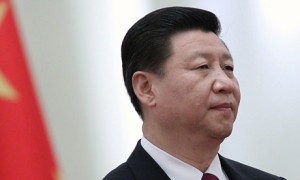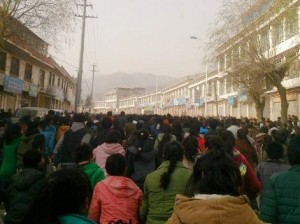The attention of the world is on China as the country transitions to a new Communist government after its 18th National Congress. While China plays an increasingly dominant role in international affairs, one of the most pressing questions surrounding the transition is domestic: will the new government signal any change in China’s widely criticized position toward Tibet? As Tibetans grow increasingly desperate for relief, with the number of self-immolations protesting Chinese oppression growing at an alarming rate, Tibetans, human rights advocates, and sympathizers of the cause wait with bated breath.
Navi Pillay, the United Nation’s high commissioner for human rights, recently made a public statement strongly criticizing the Chinese government’s treatment of Tibetans, citing the rise in self-immolations as a clear sign of desperation borne of China’s brutal tactics, ranging from detentions, beatings, torture, and an excessive military presence in Tibetan areas. She noted that there are 12 outstanding requests for visits to China by UN special investigators, and said that “social stability in Tibet will never be achieved through heavy security measures and suppression of human rights.” Unfortunately, her spokesperson, Rupert Colville, explained the rare public admonishment was due to the fact that “we don’t see any visible signs of progress.”
Indeed, China’s level of cruelty has only seemed to increase. Phayul recently reported that authorities have gone so far as to ban monks from attending prayer ceremonies mourning the deceased. After a self-immolation by three young monks from the Ngoshul Monastery, police barred fellow monks from attending the loved ones of their colleagues. Information regarding the condition of two monks involved in the protest was unattainable, due to the high security presence by the People’s Armed Police. Meanwhile, Tsewang Rigzin, president of Tibetan Youth Congress, and 13 fellow protestors were arrested in New Delhi after storming the Chinese embassy there, raising slogans demanding independence for Tibet and relief from Chinese brutality, in an effort to vocalize the issue during the ongoing Congress Convention in China. The rising intensity of the Chinese crackdown and lack of any political response to the protests does not bode well for the Tibetan cause.
Chinese transitions of power are notoriously shrouded in secrecy. Those leaders who will assume control are chosen well in advance of the Congress, and the decision-makers consist of current and retired leaders who are often not even delegates to the official ceremony. While the delegates are chosen by members of the Communist Party, they are vetted by the party’s personnel division, rendering the members’ involvement indirect, at best. For example, Hu Jintao, the outgoing President, is the official delegate from Jiangsu province, despite the fact that he hasn’t called the province home in four decades. Furthermore, specially invited delegates, such as retired President Jiang Zemin, still wield considerable power regardless of the fact that they are not elected. The theme of the current Congress has been largely economic, as the new Communist Party chief and incoming president Xi Jinping made clear in his first comments to the party. His speech focused on the problem of corruption, which he said, would “doom the party and the state” if it is not curtailed. Corruption is indeed a hot-button issue with the Chinese people and has been the subject of a majority of international news coverage, in addition to other fiscal issues facing China’s rapidly growing economy, the world’s second-largest.
The Tibetan issue, as the New York Times recently noted, has received negligible attention. Comments from delegates have ranged from utterly dismissive to bizarre, with one responding to international journalists’ questions by asking, simply, “can I not answer that?,” and Qiangba Puncog, the deputy party chief of Tibet, offering this baffling take on the problem, according to the South China Morning Post: “I can’t say there are no self-immolations in Tibet; however, most Tibetan people and monks didn’t burn themselves.” Moreover, the Times noted that there has been a troubling lack of attention given to the issue by Chinese intellectuals, who are normally adept at circumventing attempts by the government to block unflattering commentary in social media and elsewhere. “The apathy is appalling,” Zhang Boshu, a Chinese political philosopher, told the Times.
The widening gulf between the issues important to China’s Han majority and the desperate cries among minority Tibetans does not indicate good prospects for change, as internal pressure, though heavily stymied, is one of the only effective measures against the ruling elite. It seems, rather, that it might require a highly public and relentless effort on the part of the international community to pressure China into softening its treatment of Tibetans. Perhaps increasingly condemnatory statements from the UN signal an uptick is such pressure. The 18th National Congress, however, did not show any sign that the government will soon relent.





 Print
Print Email
Email